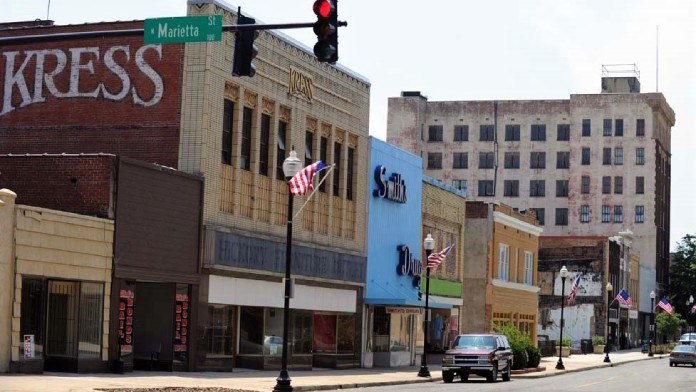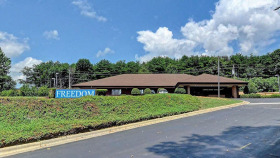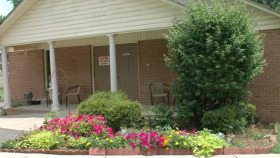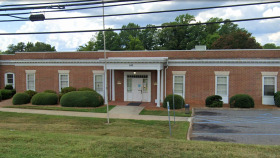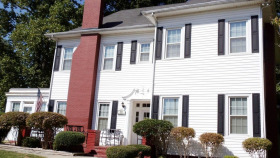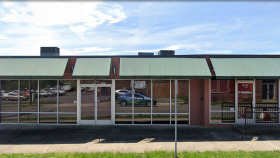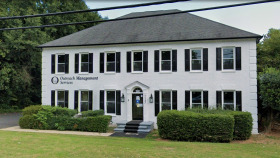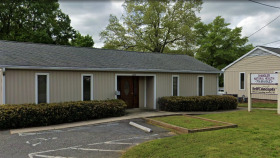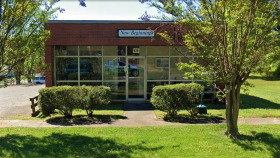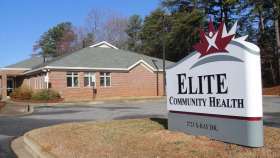Alcohol and Drug Use Statistics in Gastonia, NC
There were 83 drug overdose deaths in Gaston County during the 12-month period ending March 2022.1
Gaston County police made a total of 964 drug-related arrests in 2020.5
Gaston County experienced 377 emergency department visits due to drug overdose in 2021.6
For the period 2017-2019, more than 94% of emergency department visits related to opioid overdose in Gaston County were people who identified as white.6
Levels of Care for Addiction Treatment Settings
There are various types and settings of drug rehab, varying in structure and intensiveness.
Professional Detox
If you are dependent on alcohol or drugs like opioids, quitting can lead to uncomfortable withdrawal symptoms. Inpatient and outpatient detox can help manage your withdrawal symptoms and reduce the risk of relapsing to substance use.
Inpatient Care
Residential rehab is the most structured and intensive setting, providing a peace and serene environment to jumpstart your recovery, away from everyday stressors. You live at the treatment center during treatment and receive a variety of therapies and interventions.
Partial Hospitalization Programs (PHPs)
A step down from inpatient rehab, you attend several hours of treatment per day and return home during non-treatment hours (typically the evening or nighttime). This is a great option for someone who needs a high level of care but doesn’t want to stay overnight at a residential facility.
Intensive Outpatient Programs (IOPs)
Less intensive than PHP, an IOP involves several hours of therapy per week, often visiting the treatment center between three and five days each week. This is often used as a step-down option from inpatient or PHP, though some people’s first point of contact with substance abuse treatment may be an IOP, especially if their addiction is mild or they want to continue working or attending school while recovering.
Standard Outpatient
The least intensive treatment option, standard outpatient, involves one to two hours of treatment per day for one or two days per week. This option has the least oversight and supervision, which increases the risk of relapse; however, highly motivated people with a strong support system may find this level beneficial.
Aftercare
Support doesn’t end once you complete your drug rehab program—it’s important to receive aftercare, which can provide you with ongoing support and encouragement in the form of 12-step groups, non-12-step groups like SMART Recovery, ongoing therapy, sober living homes, and more.
Financing Drug and Alcohol Rehab in North Carolina
If you are worried that you won’t be able to afford drug and alcohol rehab, check out these strategies for financing addiction treatment.
Private Insurance
If you have private health insurance through work or purchased from the Healthcare Marketplace, you can use it to cover the cost of drug and alcohol rehab, either partially or fully, depending on the treatment program you choose.
North Carolina Medicaid
North Carolina Medicaid is a government program providing health insurance coverage for low-income families and individuals. If you have Medicaid, you can use it to cover substance abuse treatment services, although you’ll want to make sure to find a rehab that accepts this form of payment.
Medicare
If you have North Carolina Medicare, you can use it to pay for the cost of drug and alcohol treatment services; however, you’ll want to make sure to find a facility that accepts Medicare.
TRICARE in North Carolina
North Carolina is in the East Region for TRICARE and provides coverage for drug and alcohol addiction treatment and rehab for military personnel, retirees, and their families.
Sliding Scale Rehabs
If you need financial assistance, you can seek out a sliding scale rehab, which charges a reduced price based on your income.
IHS-Funded Drug Rehabs
The Indian Health Service funds various alcohol and drug treatment centers that provide free care to Indigenous people with substance use disorders.
Traveling to and Within Gastonia, NC
Will you be traveling for addiction treatment in Gastonia, NC, or visiting a loved one undergoing treatment at a Gastonia drug and alcohol rehab? If so, use these helpful tips to guide your travel plans:
- For flights to Gastonia, Charlotte Douglas International Airport is just 10 miles away.
- Gastonia City Bus service offers routes throughout the city. Fares are $1.25 ($0.60 for seniors and those with disabilities). Buses run 5:30 am-6:30 pm M-F and 8 am-6 pm Saturdays.
- While Gastonia is not considered bikeable or walkable, rideshare services such as Uber and Lyft are readily available to get around town by car.
- A must-see in Gastonia is the city’s Schiele Museum of Natural History and Planetarium.
- Great Day trip options from Gastonia include Lake Wylie, Charlotte, and the Biltmore Estate (Asheville).
North Carolina Drug and Alcohol Laws
Below are some important North Carolina laws related to substance misuse:1
North Carolina Recovery Courts: Non-violent offenders can go to court-ordered drug rehab instead of serving jail time.
North Carolina Good Samaritan Overdose Law: Witnesses to overdoses can receive immunity from prosecution when they call 911 to save a person’s life.
Resources
- Provisional County drug overdose deaths. (2022, October 11). https://www.cdc.gov/nchs/nvss/vsrr/prov-county-drug-overdose.htm
- S. County Opioid Dispensing Rates, 2020. (2022, October 7). CDC Injury Center. https://www.cdc.gov/drugoverdose/rxrate-maps/county2020.html
- Opioids. (n.d.). Gaston County, NC. Retrieved December 19, 2022, from https://www.gastongov.com/956/Opioids
- Goodale, R. (n.d.). City of gastonia and gastonia PD launch campaign to fight fentanyl abuse; combined effort with other agencies to break the cycle of addiction. City of Gastonia. Retrieved December 19, 2022, from https://www.cityofgastonia.com/index.php?option=com_content&view=article&id=1865
- Hicks, C. (2021, March 24). Gaston Co. recovery court program offers low-level drug offenders treatment instead of incarceration. WBTV. https://www.wbtv.com/2021/03/24/gaston-co-recovery-court-program-offers-low-level-drug-offenders-treatment-instead-incarceration/
- Niu, J. (2021). Gaston County Community Health Assessment. Caro Regional Medical Center and Gaston County Public Health. https://www.gastongov.com/DocumentCenter/View/3394/2021-Gaston-County-Community-Health-Assessment-PDF?bidId=

